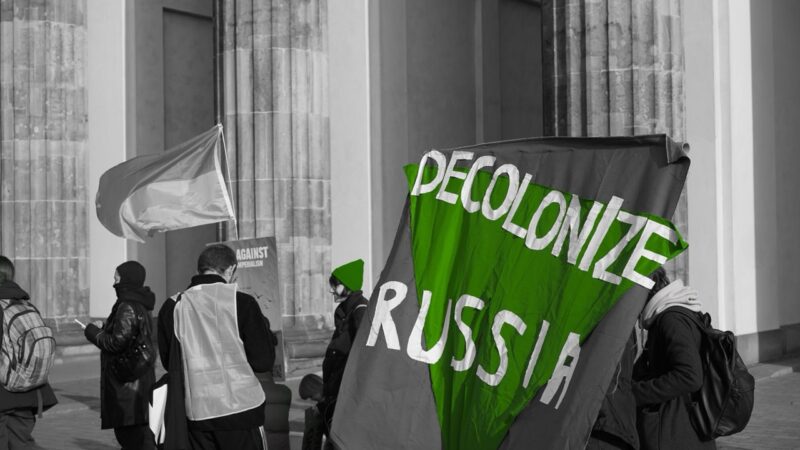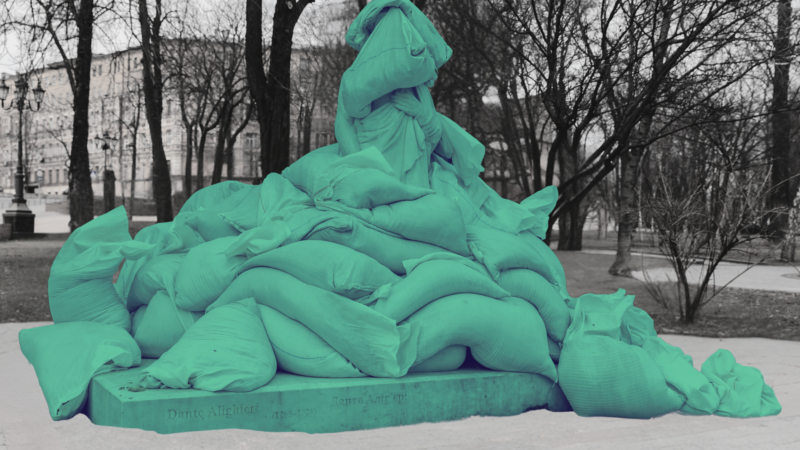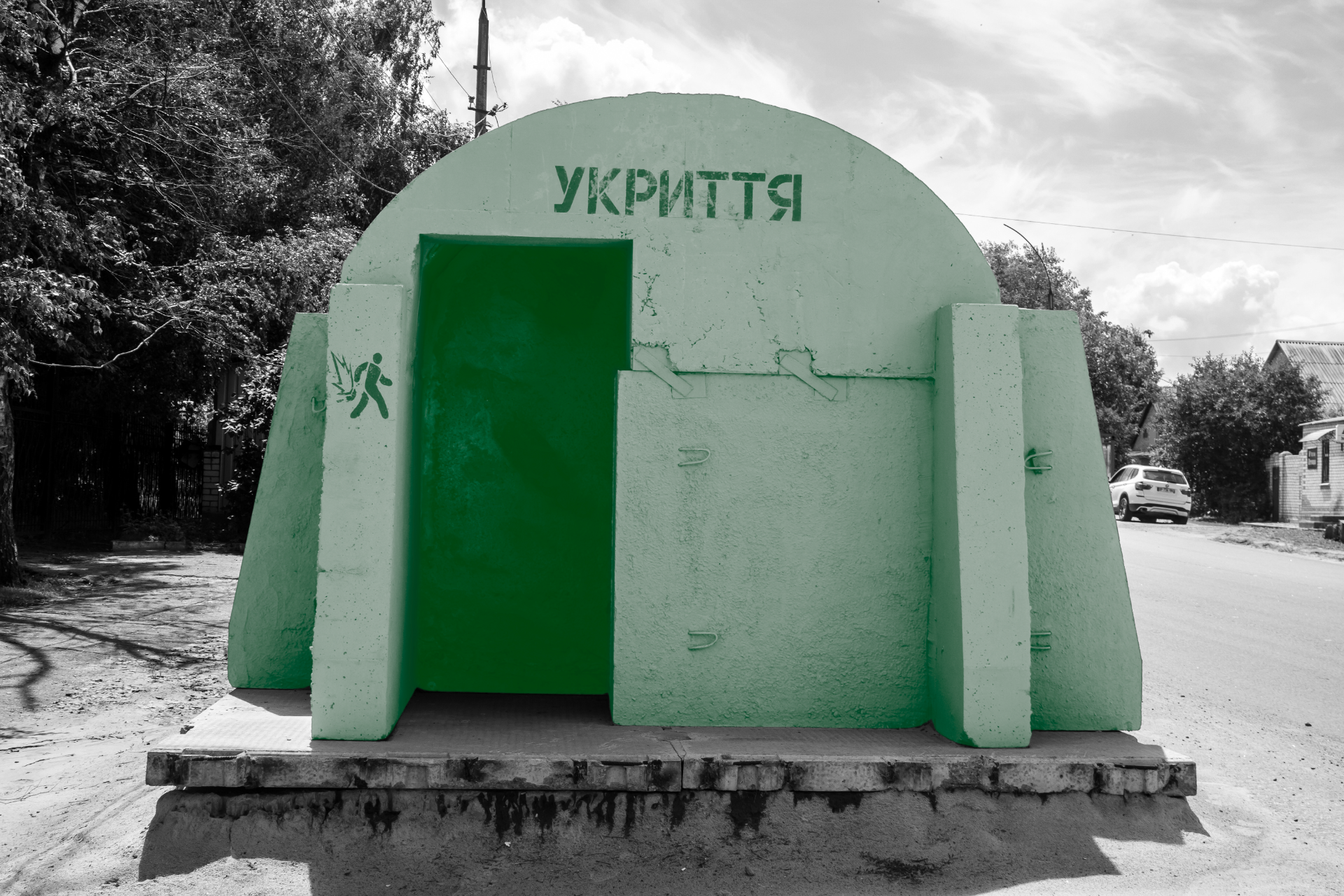Will Russia Stop Lying About Biological Weapons?
Part of Russia’s disinformation activities throughout its unprovoked invasion of Ukraine has been to make a series of false claims about Ukrainian nuclear, chemical, and biological weapons. Russian officials have repeatedly alleged that the United States are funding and directing biological activities in Ukraine and other countries that surround Russia. Such disinformation is not new, as Russian officials—and before them, Soviet ones—have a long history of making false claims about the US military promoting biological weapons in other countries.
What is new is how persistent Russian officials have been about raising these claims in international diplomatic forums and spreading them in the media. State parties to the Biological Weapons Convention (BWC) have consistently rejected Russia’s claims in multiple international forums. Such disregard for the impact that these false allegations have for the BWC represents a historical low point for a nation that was an original depository state for this important arms control treaty. Nonetheless Russia persists, without regard to how it is weakening an international norm against biological weapons.
Russian invasion followed by intensification of false biological weapons narrative
Russian authorities began to spread disinformation about biological laboratories in Ukraine through diplomatic channels and quietly through social media channels from the outset of the Russian expedited invasion. On 28 February 2022, for example, the Russian Embassy in Bosnia and Herzegovina posted that Russia was conducting a “special military operation” to eliminate Ukraine’s unconventional military capabilities. The post stated (in translation): “It is the USA that stuffed Ukraine with biolaboratories, which unquestionably have been used for studying methods of eliminating the Russian people [sic] at a genetic level.” Considering the multi-ethnicity of the Russian state, achieving such an aim would be technically impossible.
Russian military and official spokespersons claimed that the United States owned 15 military laboratories in Ukraine and that Ukrainians did not have any control over them. The 2005 agreement between the United States and Ukraine clearly states that the US will not own such facilities. This agreement is with the Ministry of Health Care of Ukraine, which receives assistance for disease surveillance, biosecurity, and biosafety at facilities that are under its jurisdiction or the jurisdiction of other Ukrainian ministries.
Despite the scientific improbability of “ethnic” or “Slavic” weapons, Russian officials repeatedly alleged that the US and Ukraine’s laboratories were working on them. For example, the Russian Ministry of Defense claimed: “The available documents confirm numerous cases of the transfer of biological samples of Ukrainian citizens abroad. With a high degree of probability, we can say that one of the tasks of the United States and its allies is the creation of bioagents that can selectively affect various ethnic groups of the population.” Examining the evidence of this claim about a “Slavic weapon,” Russian biological scientist Eugene Lewitin, in a letter signed by more than 800 Russian biologists, urged Russian journalists to stop repeating “false, absolutely groundless and hatred-inciting statements about allegedly found evidence of the development of biological weapons in Ukraine laboratories.”
The nonsensical claims about ethnic weapons were followed by similarly bizarre claims about bats, snakes, and birds used as delivery vehicles. On 6 March the Russian ministry of defense claimed that it had recovered documents in Ukraine showing US funding to support military-related biological work. On 11 March, in a UN Security Council meeting Russia’s UN ambassador Nebenzya reiterated the claim that Ukraine and the United States planned to use migratory birds and bats to spread pathogens. Neither the US nor Ukraine ever conducted research into using birds or bats as delivery vehicles for biological weapons. Instead, Ukrainian scientists were conducting research on the diseases commonly found in farm animals, and that bats, reptiles, and birds could potentially be the transmitters of diseases.
Russian claims about nefarious connections between the US and Ukraine have old roots. As an extensive study of Russian disinformation by the Foreign Policy Council “Ukrainian Prism” showed, in Ukraine in 2020 many of the main promoters of this narrative were pro-Russian Ukrainian politicians, primarily from the “Opposition Platform For Life” political party. This false claim was then aired on Ukrainian and Russian television and social network channels.
To elevate these false claims for domestic political gain, Russian sympathizers asked the Ukrainian president and security services to provide information regarding the “work of 15 military biolaboratories of the USA, which threatened the lives and health of Ukrainians, about what the European media have been reporting.” As evidence they cited old articles in Serbian, Bulgarian, and obscure pro-Russian media as their sources.
Despite statements by the UN Under-Secretary-General for Disarmament Affairs, and numerous articles by experts and fact-checking organizations countering Russian claims of biological weapons activities in Ukraine, Russia continued its disinformation narrative.
Russia’s uses international diplomatic forums to repeat false narratives
On 6 April Russia called an Arria Formula meeting at the UN, which any member state can convene outside the Security Council chambers. The subject of the meeting was “Threats to international peace and security emanating from military biological activities in regions across the globe.” In addition to remarks by Russia’s first deputy representative to the UN there was a video presentation by Lt-Gen Igor Kirillov, who repeated false claims he made a month earlier. All the speakers presented by the Russian delegation repeated the false claims about biological weapons research. Since this event, the Russian delegation has repeatedly raised this topic in various UN settings.
Russia’s effort to use the UN as a platform for its disinformation narrative prompted responses from several states. Ireland’s Permanent Mission to the UN issued a statement arguing that “Russia should stop trying to use the Security Council, including the Arria-format, as a platform for its disinformation campaign, to paint itself as the victim of its own aggression, in the face of the heinous actions it has committed in Ukraine.” Norway’s UN mission issued a statement arguing that “Russia has failed to offer any credible evidence for its accusations. Providing us instead with unsubstantiated claims and mere insinuations.” In spite of these accusations of irresponsible international behavior, Russia has stuck to its false narrative.
In July 2022 Russia requested, via the BWC’s Article V, a formal consultative meeting to table allegations about Ukrainian biological laboratories. According to two experts writing for the Bulletin of the Atomic Scientists (which also publishes the annual “Doomsday Clock” announcement), this “represents a significant escalation of Russia’s efforts”; they note that “Russia will face substantial hurdles in convincing the world that its claims are true.” Russia’s call for an Article V meeting kept the false narratives alive and brought them once again to the attention of the diplomats from the 184 countries which are signatories to the agreement, as well as of the international media that cover the deliberations.
Contrary to Russia’s narrative, Article X of the BWC calls for biosafety and biosecurity assistance to be provided from the USA to countries around the globe. The convention urges states to cooperate on safety and security for human and animal health laboratories. Nations that have benefited from this type of assistance have started to work together on issuing joint statements. Prior to the BWC Article V formal consultative meeting, a group of countries issued in August a joint statement supporting the US’s international assistance on biosafety and biosecurity. The joint statement “On the contribution of cooperative threat reduction partnerships to global health security” was signed by Armenia, Georgia, Iraq, Jordan, Liberia, Philippines, Sierra Leone, Uganda, Ukraine, and the United States.
States party to the BWC recently held the 9th Review Conference pursuant to the agreement in Geneva. Russia continued to raise its false claims, but as in other international meetings, their claims were not taken seriously. Some countries had planned to work toward strengthening the agreement, including discussing a verification protocol to bolster Article VI of the convention. Unfortunately, debates over Russia’s false claims about biological activities in Ukraine divert attention from considering constructive improvements to the convention, wasted time, and risked weakening this important universal treaty. As a result of the desire to obtain a consensus, in the review conference’s report there ended up being very few measures to strengthen the agreement.
Why does Russia persist with its claims despite international rejection?
Some of the main Russian disinformation narratives concerning biological weapons promoted since March 2022 are:
- Laboratories in Ukraine are controlled by the Americans. Even if Ukraine runs the operations at these laboratories, the work is in support of American biological weapons programs.
- The activities in these laboratories on Ukrainian territory are in violation of the Biological Weapons Convention.
- Some of the research at these laboratories seeks to develop “ethnic” weapons that can be used against Russians.
- Ukraine was working on the means of delivery of a biological weapon that includes specially trained birds, bats, and mosquitos.
- The United States was conducting experiments on Ukrainian soldiers to make them into genetically modified “super soldiers.”
- Some of the financing behind companies working in the laboratories come from Hunter Biden and George Soros.
- Russia’s invasion of Ukraine was motivated in part to prevent the United States or Ukraine from using biological weapons against Russians.
Given that Russia’s false accusations have been largely rejected by the international community, why do Russian officials maintain these false claims? What possible rationale can there be that motivates them to continue repeating these claims?
One explanation is Russia’s disinformation on U.S. and Ukrainian biological activities serves as justification for the unprovoked invasion, aimed both internationally and at the Russian domestic audience. To maintain support and justify the “special military operation,” the Putin regime needs a rationale. As bodies of Russian soldiers are sent back to their motherland, the Kremlin inevitably needs an argument to justify the sacrifice.
To excuse its actions in Ukraine, Moscow attempts to draw a clear parallel to the US reasoning for its military intervention in Iraq in 2003, which was based on the belief that Saddam Hussein continued to seek weapons of mass destruction. Russia equates its so-called “special military operation” to the actions then taken by Washington and its NATO allies.
The serial character of the narrative should also be emphasized—an often-used tactic by Russian propaganda when the same or similar narrative has repeatedly emerged. This promotes recognizability of the idea and builds on previous emotions, in this case including the insinuation of American biolaboratories’ involvement in the COVID-19 pandemic that was promoted by the Russian media and their proxies.
The support of a few of Russia’s close allies who for their own reasons want to support a narrative that is anti-US and anti–Western nations provides a thin patina of legitimacy to its false claims. China’s support for the Russian claims diverts international attention from the fact that the COVID-19 pandemic originated in China and fits with the PRC’s narrative that the outbreak came from the US. Repeating Russia’s false claims and arguing that Russia is within its rights as a member of the BWC to lodge these concerns just adds confusion to the international understanding.
Finally, it is possible that Russian officials have come to believe their own lies. Regime spokespersons refer to publicly available documents that are taken out of context as evidence of US involvement with biological weapons around the globe. Repeating lies about biological weapons activities has become a standard part of the Putin regime’s rhetoric. They have repeated these allegations in different forms so many times that Putin and his close supporters may believe their own rhetoric.
Countering Russia’s disinformation narrative on biological weapons activities
To counter the Russian disinformation narrative about US and Ukraine biological weapons, more countries need to issue public statements calling out Russia’s false claims. Ireland and Norway’s statements were a start. Statements by other nations at the BWC Article V Formal Consultative Meeting in September were another example when states other than the United States and Ukraine constructively countered the falsity of Russia’s biological weapons disinformation narrative. Statements by countries that have benefitted from international assistance to enhance the safety and security of their human and animal laboratories is another step for nations to take. In the wake of the COVID-19 pandemic there has been a dramatic boom in the construction of legitimate laboratories working on pathogens around the world.
Undoubtedly Russian officials will continue to spread lies about US and Ukrainian biological activities. Therefore, our vital task is to make clear to the international community that its claims are false and that Russia is not a credible nation in the international system. In the UN and other international forums, responsible states need to condemn false Russian claims by voting against its resolutions and issuing statements explaining their rationale as an act supporting the BWC. Failing to do so in international forums enables Russia to continue spreading false propaganda and erodes the integrity of that important arms control treaty.





